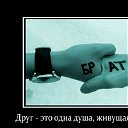Кино и театр
Опишите краткое содержание фильма: 'Ирония судьбы .Продолжение" на английском языке
Huinya
Russians are flocking to see a modern sequel to a Soviet-era cult film, indulging in a bout of nostalgia that embraces the subtle — and not so subtle — changes that have overtaken their country. The original “Irony of Fate” has been a hit for 32 years. The lengthy but often hilarious and unashamedly romantic comedy is considered a national treasure, showing without fail on state television every New Year’s Eve. The modern version, “Irony of Fate: The Sequel,” uses the same main actors, as well as younger stars, and revolves around the same magical day, Dec 31. But the differences are as striking as the similarities, transposing the boy-meets-girl plot from an austere Soviet setting to consumerism-mad modern Russia — as love remains love in any era. In the 1975 original, directed by Eldar Ryazonov, the ironic fate of the title refers to the adventures of a young Moscow doctor played by Andrei Myagkov, who gets drunk on Dec 31 and ends up in Leningrad, today’s Saint Petersburg.
Uniformity
It makes fun of the uniformity of Soviet lives. The inebriated hero, who has no idea where he is, heads to a street and apartment building identical to his own back in Moscow, and enters an apartment that is also the mirror image of his own. When the real owner, a beautiful young woman played by Polish actress Barbara Brylska, returns home, the comedy — and the romance — get going. Using the original music and almost identical scenes, spiced up with contemporary language, director Timur Bekmambetov makes the new heroes the daughter of Brylska’s character and the son of Myagkov. This time, he turns the comic eye from the sameness of Soviet urban landscapes to the conformities in post-Soviet Russia. “We tried to make the link between the past, the bygone days, and the present: young people constantly ask us what it was like before,” said the film’s producer Anatoly Maximov. The film, which was heavily hyped ahead of release, has drawn queues of people, something rarely seen in Russian cinemas. Shot in Prague and Saint Petersburg with a budget of about five million dollars (3.4 million euros), “Irony of Fate: The Sequel” was set to gross more than 50 million dollars across the former Soviet Union, according to its producers. Viewers, many of them older people who grew up with the original movie, discovered a flashier, though not necessarily more warm-hearted country in the sequel. The original was infused with humble Soviet-era pleasures of friendship, literature and music. Leningrad in the 1970s was a place with virtually no consumer culture, where people had little to buy at New Year’s but had plenty of time for each other.
Reflected
Post-Soviet Russia, as reflected in Bekmambetov’s movie, is a different beast with a well-developed shopping culture. Product placement — where manufacturers pay to get their products used in films for maximum exposure — is literally part of the movie’s fabric and has drawn some fire from critics. “Starring Toyota, Nokia,” joked a headline in Novaya Gazeta. “‘Irony of Fate-2’ is as stuffed with advertising, as ‘Irony of Fate-1’ is with poetry,” the newspaper wrote. Producer Konstantin Ernst also said the obsession with mobile phones in the film reflects the state of modern relationships. “These wireless exchanges have played a bad trick on humanity by replacing direct human contact”, he said. In a funny but jarring scene, a character named Irakli plays a typical post-Soviet success story, looking his beloved in the eye while nattering by handsfree-mobile to an associate spending his New Year at an Egyptian resort. “He is absolutely the hero of our times,” said the beautiful Liza Boyarskaia, who plays the role of Irakli’s fiancee Nadia, in an interview with Afisha magazine. “He succeeds in everything — and shows off.”
Uniformity
It makes fun of the uniformity of Soviet lives. The inebriated hero, who has no idea where he is, heads to a street and apartment building identical to his own back in Moscow, and enters an apartment that is also the mirror image of his own. When the real owner, a beautiful young woman played by Polish actress Barbara Brylska, returns home, the comedy — and the romance — get going. Using the original music and almost identical scenes, spiced up with contemporary language, director Timur Bekmambetov makes the new heroes the daughter of Brylska’s character and the son of Myagkov. This time, he turns the comic eye from the sameness of Soviet urban landscapes to the conformities in post-Soviet Russia. “We tried to make the link between the past, the bygone days, and the present: young people constantly ask us what it was like before,” said the film’s producer Anatoly Maximov. The film, which was heavily hyped ahead of release, has drawn queues of people, something rarely seen in Russian cinemas. Shot in Prague and Saint Petersburg with a budget of about five million dollars (3.4 million euros), “Irony of Fate: The Sequel” was set to gross more than 50 million dollars across the former Soviet Union, according to its producers. Viewers, many of them older people who grew up with the original movie, discovered a flashier, though not necessarily more warm-hearted country in the sequel. The original was infused with humble Soviet-era pleasures of friendship, literature and music. Leningrad in the 1970s was a place with virtually no consumer culture, where people had little to buy at New Year’s but had plenty of time for each other.
Reflected
Post-Soviet Russia, as reflected in Bekmambetov’s movie, is a different beast with a well-developed shopping culture. Product placement — where manufacturers pay to get their products used in films for maximum exposure — is literally part of the movie’s fabric and has drawn some fire from critics. “Starring Toyota, Nokia,” joked a headline in Novaya Gazeta. “‘Irony of Fate-2’ is as stuffed with advertising, as ‘Irony of Fate-1’ is with poetry,” the newspaper wrote. Producer Konstantin Ernst also said the obsession with mobile phones in the film reflects the state of modern relationships. “These wireless exchanges have played a bad trick on humanity by replacing direct human contact”, he said. In a funny but jarring scene, a character named Irakli plays a typical post-Soviet success story, looking his beloved in the eye while nattering by handsfree-mobile to an associate spending his New Year at an Egyptian resort. “He is absolutely the hero of our times,” said the beautiful Liza Boyarskaia, who plays the role of Irakli’s fiancee Nadia, in an interview with Afisha magazine. “He succeeds in everything — and shows off.”
very cool! Happy end))
Russian New Year
Похожие вопросы
- Вы читали высказанное мнение Андрея Мягкова относительно снятого фильма ,,Ирония судьбы . Продолжение,, ?
- Как Вы относитесь к фильму [ Ирония судьбы. Продолжение. ]?
- Как вам фильм "Ирония судьбы продолжение ?
- Как вы относитесь к фильму "Ирония судьбы. Продолжение"?
- Как вам фильм "Ирония судьбы... продолжение"?
- Как вам фильм "Ирония судьбы"-продолжение. Еще бы стали смотреть?
- Неужели есть люди, кому не понравился фильм "Ирония судьбы продолжение"???
- Понравился ли Вам фильм "Ирония судьбы. Продолжение"?
- Не могу понять понравился ли мне фильм "Ирония Судьбы. Продолжение" А как вам?
- Скажите Вам понравился фильм "Ирония судьбы продолжение




